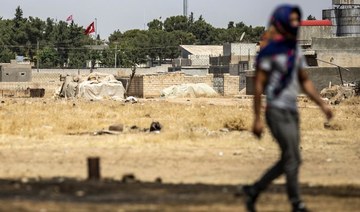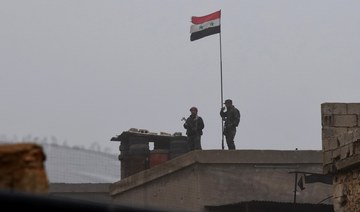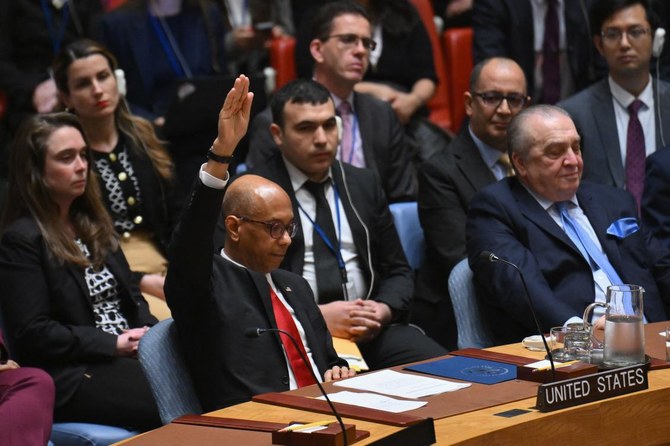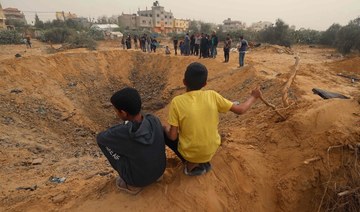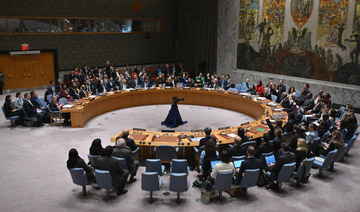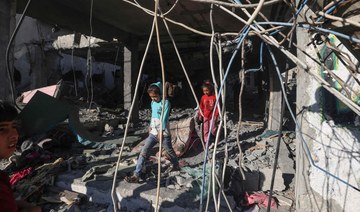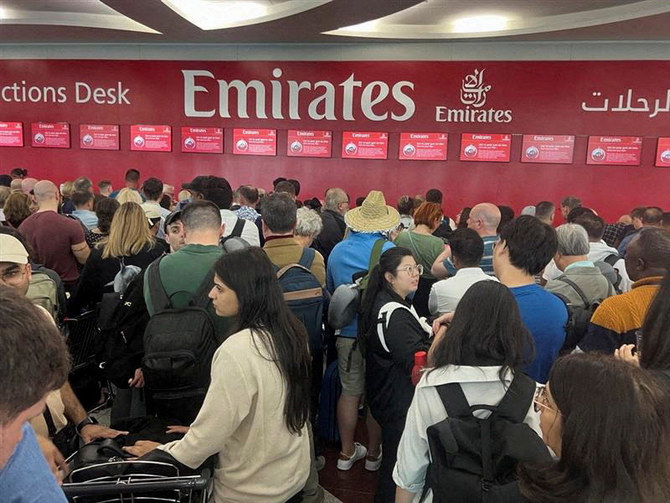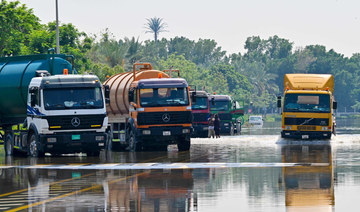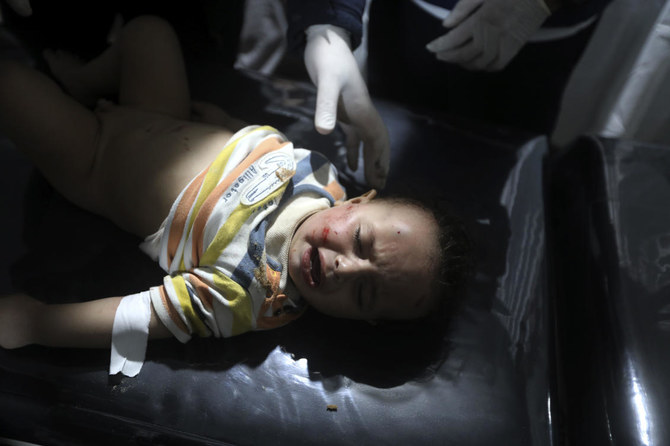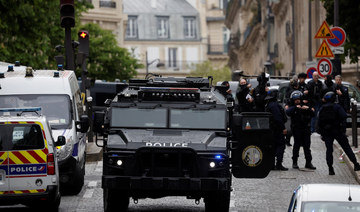HASAKAH/SYRIA, BEIRUT: Syria’s Kurds would support the implementation of a US-Turkey deal to set up a buffer zone in their areas along the Turkish border, they said on Saturday.
The “safe zone” agreed by Ankara and Washington earlier this month aims to create a buffer between the Turkish border and Syrian areas controlled by the Kurdish People’s Protection Units (YPG).
The YPG have played a key role in the US-backed battle against Daesh in Syria, but Ankara views them as “terrorists.”
On Saturday, Mazloum Kobani, the head of the YPG-led Syrian Democratic Forces (SDF), said his alliance would back the deal.
“We will strive to ensure the success of (US) efforts toward implementing the understanding ... with the Turkish state,” he said.
“The SDF will be a positive party toward the success of this operation,” he told journalists in the northeastern town of Hasakah.
US Central Command said late on Friday that the SDF — which expelled Daesh from their last patch of territory in eastern Syria in March — had destroyed outposts in the border area.
“The SDF destroyed military fortifications” on Thursday, it said in a statement on Twitter.
“This demonstrates (the) SDF’s commitment to support implementation of the security mechanism framework.”
On Wednesday, the US and Turkish defense ministers “confirmed their intent to take immediate, coordinated steps to implement the framework,” said a statement by the US Department of Defense.
Also on Saturday, a representative of the US-led coalition fighting Daesh said the buffer area sought to “limit any uncoordinated military operations.”
“We believe that this dialogue is the only way to secure the border area in a sustainable manner,” Brig. Gen. Nicholas Pond said.
On Aug. 7, Turkish and US officials agreed to establish a joint operations center to oversee the creation of the “safe zone.”
Little is known about its size or how it will work, but Ankara has said there would be observation posts and joint patrols.
Damascus has rejected the agreement as serving “Turkey’s expansionist ambitions.”
Syrian Kurds have established an autonomous region in northeast Syria amid the country’s eight-year war. But as the fight against Daesh winds down, the prospect of a US military withdrawal had stoked Kurdish fears of a long-threatened Turkish attack.
Turkey has already carried out two offensives into Syria in 2016 and 2018, the second of which saw it and allied Syrian rebels overrun the Kurdish enclave of Afrin in the northwest.
Meanwhile, a car bomb exploded in the Syrian city of Idlib on Saturday, a war monitor said, as regime airstrikes hit its outskirts in a government offensive on the last major opposition bastion.
The Britain-based Syrian Observatory for Human Rights and opposition-run Orient News said a car blew up in the Al-Qusoor neighborhood.
The Observatory said the blast killed two and wounded at least 11.
The city and the surrounding Idlib province in northwest Syria form part of the last big rebel stronghold in Syria.
A new push by Syrian government and Russian forces to take the area has seen heavy strikes and advances this week in the south of Idlib province and nearby Hama, prompting a new civilian exodus. Hundreds of people have been killed in the campaign since late April, the United Nations says.
On Friday Russia-backed Syrian troops reclaimed a cluster of towns they had lost early in the eight-year-old war, driving out the last rebel fighters from the Hama countryside.
Idlib city itself has largely been spared air strikes since a major bombing campaign on the territory began in late April, but on Saturday its outskirts were hit from the air, the Observatory and opposition media said.
Heavy strikes continued to hit the south of Idlib province, including around Maarat al-Numan, a city that has been a sanctuary for families fleeing former rebel areas around the country. This week tens of thousands fled to Syria’s border with Turkey as the fighting advanced.




